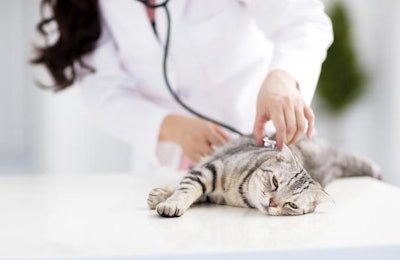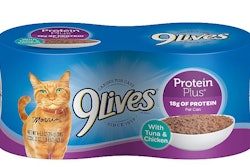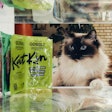
The health of cats with chronic kidney disease improved after eating pet foods formulated to address feline renal problems. In an experiment, scientists observed positive effects from both Royal Canin Renal Support A Feline dry cat food and a test food: Hill’s Prescription Diet k/d Feline with chicken dry cat food.
The results of the study “Cats with IRIS stage 1 and 2 chronic kidney disease maintain body weight and lean muscle mass when fed food having increased caloric density, and enhanced concentrations of carnitine and essential amino acids” were published in the journal VetRecord.
Research on cat food formulated to benefit kidney health
To conduct their experiment, researchers from Oregon State University and Hill’s Pet Nutrition Center enrolled 28 adult cats suffering International Renal Interest Society (IRIS) stage 1 and 2 chronic kidney disease (CKD). Twenty cats completed the study.
“Although renal therapeutic foods have been recommended for decades with the expectation that they would alleviate clinical signs of uraemia and slow progression of CKD, their clinical effectiveness and nutritional impact recently have been challenged,” the scientiests wrote. “Some veterinarians have even suggested that cats with CKD should be fed high-protein foods as a strategy to preserve muscle mass.”
Over six months, the cats ate one of three diets: a control or the renal health formulation from Royal Canin or Hill’s. The kidney health formulations had lower levels of protein than maintenance diets, but were fortified with amino acids. Of the twenty cats that completed the study, nine cats ate control diets and 11 cats ate test foods.
While the control diet had a similar protein content to Royal Canin and Hill’s formulation, the test diets had controlled levels of protein and phosphorus, increased caloric density, an enhanced essential amino acid profile, added L-carnitine, fish oil, antioxidants and enhanced palatability
Researchers recorded food intake daily and body weight weekly. Blood serum, urine, dual-energy x-ray absorptiometry (DEXA) and body condition assessments were performed at 0, 1, 3 and 6 months.
“Cats consuming control food had significant loss of body weight over the 6-month feeding period, whereas cats consuming test food had a significant increase in body weight,” wrote the researchers. “Cats consumed 23 percent more calories when fed test food compared with cats fed control food. Serum creatinine increased at a faster rate in cats consuming control food compared with cats consuming test food. Cats consuming test food had increased caloric and essential amino acid intake, increased body weight, stable biomarkers of kidney function and maintained LBM compared with cats consuming control food.”















